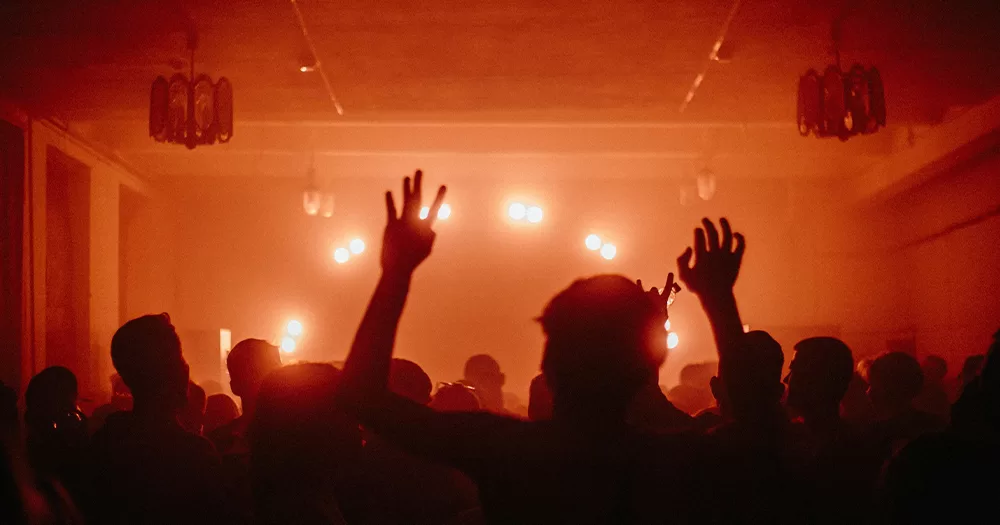Australia, and specifically the city of Brisbane in Queensland, has been witness to a complex and evolving history in the realm of LGBTQ+ rights and acceptance.
In 1932, the Arrow newspaper in Brisbane uncovered something that, for many, was a shocking revelation: same-sex marriages were reportedly taking place in the city. The tabloid’s exposé shed light on a subculture that had been operating behind closed doors, hidden from the prying eyes of mainstream society. It described a growing LGBTQ+ community, full of individuals who dared to defy societal norms.
The Arrow‘s sensationalized account painted a vivid and scandalous picture of a city seemingly overrun by what the newspaper deemed a “pervert population”. According to the newspaper, hundreds of “queer semi-feminine men” had allegedly made Brisbane their headquarters, congregating in separate sects on the north and south sides of the town.
These gatherings, the article claimed, were characterized by lurid and shocking rituals, where men engaged in what was described as “ghastly, horrifying spectacles” and got married to each other. The ceremonies were condemned as sacrilegious blasphemies by the Arrow, which called for swift and decisive action to halt what it deemed as “wide open immorality.”
While undoubtedly sensationalized, the Arrow‘s exposé offers a fascinating glimpse into the history of the hidden lives of LGBTQ+ individuals in early 20th-century Australia. It underscores the challenges and risks faced by those who dared to love outside the bounds of societal expectations, as well as the resilience and determination of a community determined to find joy and connection despite the odds.
Fast forward to recent years, and Brisbane has seen significant progress in LGBTQ+ rights. However, Queensland’s journey towards LGBTQ+ acceptance has been fraught with challenges. The era of Premier Joh Bjelke-Petersen was particularly hostile towards the community, with the government actively persecuting and marginalizing LGBTQ+ individuals. Beatings, arrests, and discriminatory laws were commonplace, creating a climate of fear and oppression that persisted for decades.
The fear surrounding HIV/AIDS further fuelled discrimination and misinformation. By 1985, over 4,500 Australians, predominantly gay men in Sydney and Melbourne, had contracted the virus, sparking panic nationwide. Misconceptions abounded, with concerns even extending to the absurd notion that the virus could spread through shared swimming pools.
In this climate of fear and ignorance, figures like Muntz, the state’s Welfare, Youth, and Ethnic Affairs Minister at the time, spearheaded campaigns against LGBTQ+ activities. He vehemently opposed events like gay swimming carnivals, perpetuating harmful stereotypes and stigmatization.
Meanwhile, efforts to combat the epidemic faced significant resistance. Queensland’s Health Minister, Brian Austin, advocated for condom machines to be installed across the state, but his proposal was rebuffed by the cabinet. Instead, discriminatory measures, such as allowing bar owners to ban homosexual patrons, were implemented, disregarding existing anti-discrimination laws. The political landscape reflected broader societal attitudes.
It wasn’t until 1990 that homosexuality was decriminalized in Queensland, and even then, progress was slow. Civil partnerships were only legalized in 2012, and it took until 2017 for the “gay panic” defence to be abolished and for same sex-marriage to be legalised. These historic milestones were hard-won victories in a long and arduous battle for equality in Australia, a testament to the resilience and determination of LGBTQ+ activists and allies who fought tirelessly for change.
Today, Queensland’s LGBTQ+ community continues to push for progress and inclusivity. While challenges remain, the state has come a long way since the days of clandestine same-sex weddings and government-sanctioned discrimination. With each step forward, the legacy of those who fought for equality lives on, inspiring future generations to continue the fight for justice and acceptance for all.
© 2024 GCN (Gay Community News). All rights reserved.
Support GCN
GCN is a free, vital resource for Ireland’s LGBTQ+ community since 1988.
GCN is a trading name of National LGBT Federation CLG, a registered charity - Charity Number: 20034580.
GCN relies on the generous support of the community and allies to sustain the crucial work that we do. Producing GCN is costly, and, in an industry which has been hugely impacted by rising costs, we need your support to help sustain and grow this vital resource.
Supporting GCN for as little as €1.99 per month will help us continue our work as Ireland’s free, independent LGBTQ+ media.
